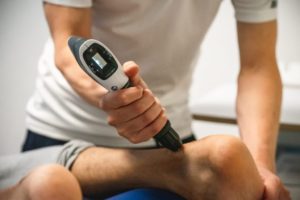What is emphysema?
Emphysema is a condition in which the alveoli become damaged, causing difficulty in taking in oxygen and releasing carbon dioxide. This leads to shortness of breath, coughing and fatigue, especially during physical activities.
Causes of emphysema
Emphysema can be caused by various factors. Causes include:
- Smoking: This is by far the most common cause of emphysema. Smoking damages the lungs and causes inflammation, leading to destruction of lung tissue and loss of elasticity.
- Heredity: Some people have a genetic predisposition to developing emphysema, even if they don't smoke.
- Air pollution: Exposure to long-term air pollution, such as particulate matter and chemicals in the workplace, can contribute to the development of emphysema.
- Age: Aging can contribute to the development of emphysema because the elasticity of the lungs decreases as we age.
- Other lung disorders: Emphysema can also arise from other lung conditions such as asthma, chronic bronchitis or cystic fibrosis.
- Rare causes: Some rare conditions or exposures, such as rheumatoid arthritis, can also cause emphysema.
Tips for dealing with emphysema
- Quit smoking: If you smoke, quitting is the most important step to prevent further damage to your lungs and reduce the symptoms of emphysema.
- Regular exercise: Despite the symptoms, regular exercise is crucial. Start with light exercises such as walking or swimming, under the guidance of a specialist.
- Breathing exercises: Physical therapy can help you learn breathing techniques that improve your lung capacity and reduce shortness of breath.
- Diet and nutrition: A healthy diet that includes plenty of vegetables, fruits and whole grains can promote your overall health and provide energy needed for daily activities.
- Avoid air pollution: Try to avoid situations with air pollution, such as heavy traffic or places where smoking is taking place, as this can make your breathing worse.
Role of physiotherapy in emphysema
Physiotherapy plays an essential role in the treatment of emphysema. Our specialized physiotherapists can help you with:
- Breathing exercises: Techniques to improve your breathing and reduce shortness of breath.
- Muscle strengthening exercises: Exercises that strengthen your muscles, making you feel stronger and have more energy.
- Lifestyle Adjustments: Advice on how to modify your daily activities to conserve your energy and improve your overall fitness.
Make an appointment with our physiotherapy
If you would like to learn more about how physical therapy can help you manage emphysema, we invite you to Contact to contact us. Our expert physiotherapists are ready to support and guide you in improving your quality of life. Contact us today for an appointment or more information. Together we can work towards a healthier and more active life, despite emphysema.
Don't let emphysema hold you back. Take back control of your health with the right support and care.










